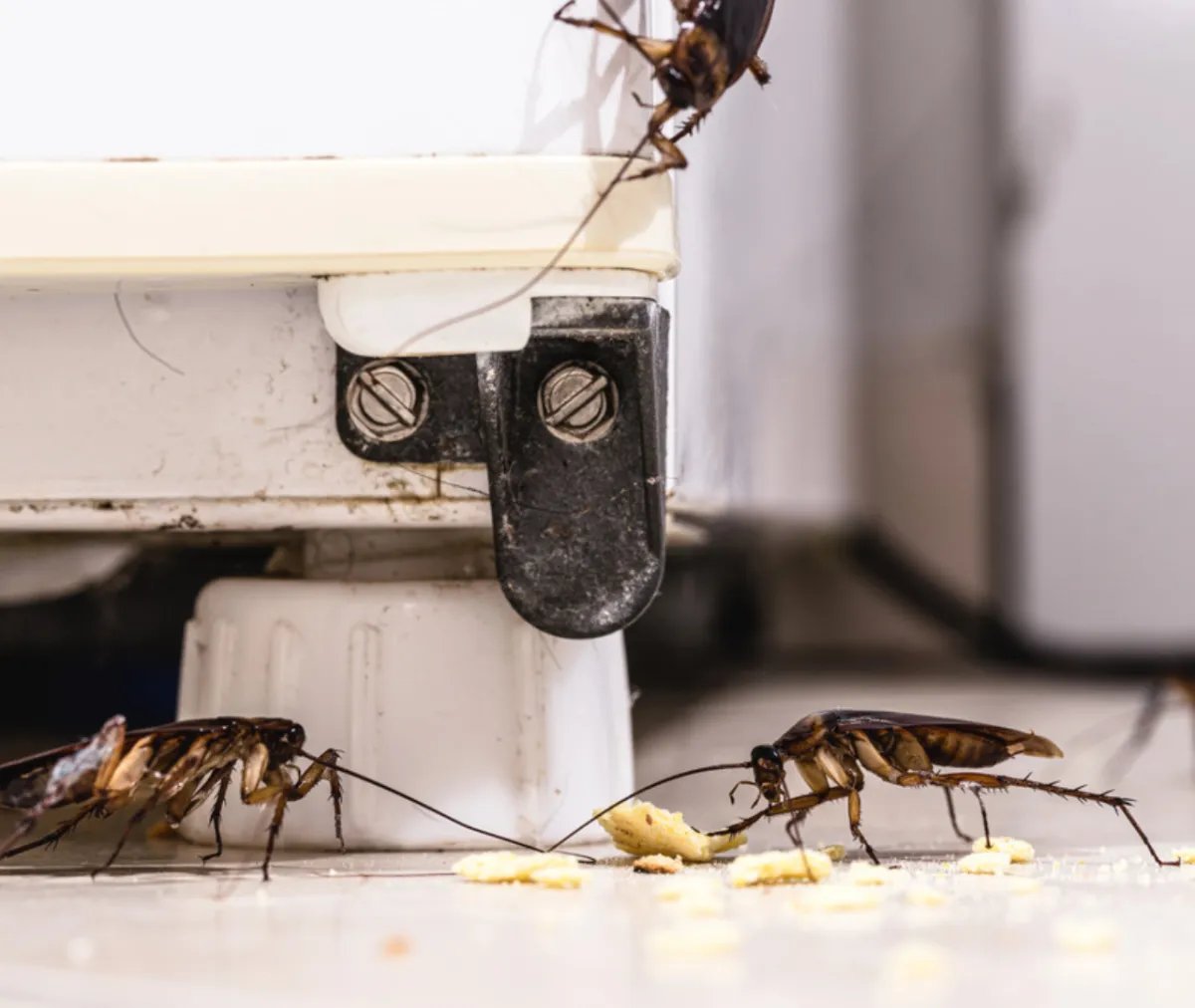
Why Regular Pest Inspections Are Crucial for Businesses
book can severely damage your credibility.
Reputation is everything in business. Regular inspections help ensure pests never become part of the customer experience.
2. Pest Infestations Often Go Unnoticed—Until It’s Too Late
Many pest problems build up slowly behind the scenes:
Rodents may nest inside walls or ceilings
Cockroaches can live under appliances or in drains
Termites eat away at structural wood silently
Ants can spread through unnoticed cracks in foundations
By the time you see pests, an infestation may already be well-established. Regular inspections catch the signs early—before the damage spreads.
3. You May Be Legally Required to Maintain a Pest-Free Facility
In industries like food service, healthcare, manufacturing, and hospitality, pest control isn’t optional it’s the law.
Health departments and regulatory agencies require pest-free environments
Violations can result in fines, shutdowns, or permanent closures
Pest sightings can lead to failed inspections and loss of certifications
Routine pest inspections keep your business in compliance with safety and sanitation laws.
4. Prevention Is Cheaper Than Infestation Treatment
Many business owners assume they can “deal with pests if they show up.” But that approach is far more costly in the long run.
Pest damage to products, equipment, or infrastructure can cost thousands
Emergency pest control treatments are more expensive than routine prevention
Lost business, downtime, and legal fees can crush your bottom line
Investing in regular inspections is a small expense compared to the cost of a major infestation.
5. Pest Control Supports Health and Safety for Employees and Customers
Pests are more than just a nuisance—they’re a health hazard.
Rodents and cockroaches spread bacteria and pathogens like salmonella, E. coli, and hantavirus
Insect bites or droppings can trigger allergic reactions or asthma in sensitive individuals
Flies can contaminate food and surfaces with germs from garbage or sewage
Maintaining a pest-free workplace protects your team, your clients, and your brand.
6. Pest Activity Varies by Season—Inspections Help You Stay Ahead
Different pests are more active at different times of the year:
Spring: Ants, termites, flies
Summer: Mosquitoes, wasps, pantry pests
Fall: Rodents seeking shelter indoors
Winter: Cockroaches and mice thrive in warm indoor environments
A recurring inspection schedule ensures you catch seasonal invaders early before they multiply or become permanent residents.
7. Pest Infestations Can Disrupt Operations
Pests don’t just pose health risks—they interfere with daily operations.
Mice chewing through wires can cause electrical failures
Cockroaches in food prep areas may trigger shutdowns
Bed bugs in hotels or offices can lead to temporary closures
Routine inspections keep operations smooth, staff safe, and facilities open.
8. You Get a Customized Pest Management Plan
One of the biggest benefits of regular inspections is tailored prevention.
Professionals identify your specific risks based on building type, location, and industry
You receive targeted treatment plans, sanitation suggestions, and structural recommendations
Ongoing visits monitor problem areas and adjust strategies as needed
This proactive approach helps businesses stay pest-free year-round.
9. You Gain Peace of Mind
Perhaps the most underrated benefit of routine inspections is confidence.
No more worrying about surprise health inspections or pest complaints
No need to panic over droppings or strange noises in the ceiling
You can focus on running your business while experts handle pest control in the background
That peace of mind is worth its weight in gold.
Industries That Should Prioritize Regular Pest Inspections
While all businesses benefit from routine pest control, the following industries are especially vulnerable:
Restaurants and Cafés: Food attracts all types of pests especially flies, rodents, and roaches
Hotels and Lodging: Bed bugs, ants, and mice can lead to poor reviews and lost bookings
Warehouses and Distribution Centers: Rodents and insects can destroy stored goods
Offices and Commercial Buildings: Even non-food businesses need pest-free spaces for employee health and client trust
Medical and Dental Clinics: Sanitary standards demand zero tolerance for pests
If your business falls into any of these categories, scheduled pest inspections should be part of your standard operating procedures.
What Happens During a Professional Pest Inspection?
Here’s what to expect:
Exterior and interior walkthrough: Checking foundations, rooflines, vents, utility entries
Hotspot monitoring: Kitchens, bathrooms, basements, crawl spaces, and storage areas
Pest identification: Detecting droppings, nests, trails, or live activity
Risk assessment: Identifying entry points, sanitation issues, or structural vulnerabilities
Recommendations: Tailored solutions based on findings
The goal is to stop problems before they become costly interruptions.
Final Thoughts: Don’t Wait for a Problem to Act
Pest issues rarely resolve on their own. In fact, they usually grow worse quickly and quietly. That’s why regular pest inspections are a non-negotiable part of protecting your business.
By taking a proactive approach, you:
Guard your reputation
Stay compliant with regulations
Prevent property damage
Protect health and safety
Keep operations running smoothly
If your business hasn’t had a professional pest inspection in the past few months, now is the time to schedule one.
.